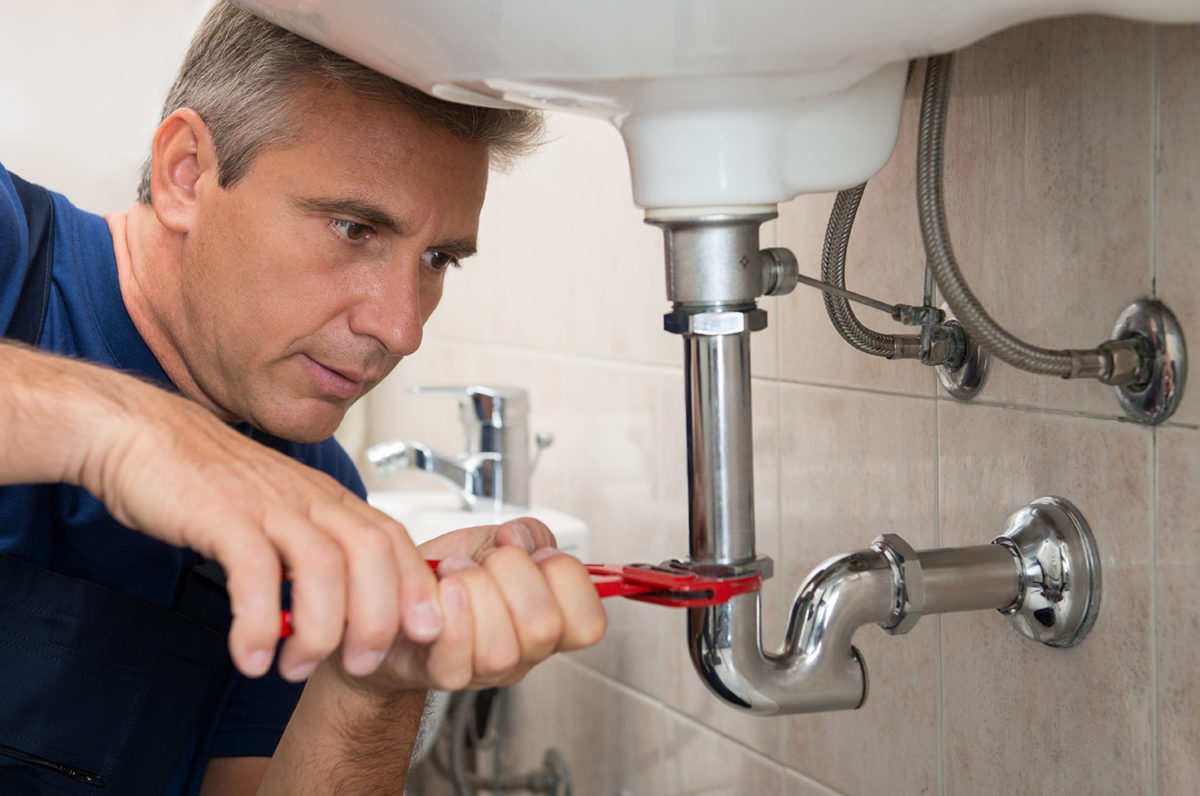Plumbing career opportunities are vast and rewarding, offering a stable and in-demand profession with excellent earning potential. From residential to commercial settings, plumbers play a vital role in maintaining the infrastructure that keeps our homes, businesses, and communities functioning smoothly.
In this comprehensive guide, we’ll delve into the exciting world of plumbing, exploring the various career paths, educational requirements, and earning potential. Whether you’re a seasoned professional or just starting your journey, this article will provide valuable insights into the opportunities that await you in the plumbing industry.
Industry Overview and Market Demand

The plumbing industry is thriving, driven by a growing population, urbanization, and increasing demand for sustainable infrastructure. The global plumbing market is projected to reach $120 billion by 2026, exhibiting a steady growth rate of 5.2%.
The demand for plumbers is also rising due to aging infrastructure, the need for water conservation measures, and the increasing popularity of smart home technologies. According to the U.S. Bureau of Labor Statistics, employment of plumbers, pipefitters, and steamfitters is expected to grow 5% from 2021 to 2031, faster than the average for all occupations.
Market Outlook
- The increasing demand for water and wastewater treatment facilities is driving the growth of the plumbing industry.
- The growing adoption of green building practices and sustainable plumbing solutions is creating new opportunities for plumbers.
- The aging population is leading to a higher demand for plumbing services for home repairs and renovations.
Types of Plumbing Careers
The plumbing field offers a diverse range of specializations, each requiring specific skills and responsibilities. These specializations allow plumbers to cater to the unique needs of different industries and project types.
Residential Plumbing
- Focuses on plumbing systems in residential homes, including water supply, drainage, and gas lines.
- Requires knowledge of local building codes and regulations.
- Involves installation, repair, and maintenance of plumbing fixtures, appliances, and pipes.
Commercial Plumbing
- Deals with plumbing systems in commercial buildings, such as offices, hospitals, and retail stores.
- Requires understanding of large-scale plumbing systems and specialized equipment.
- Involves design, installation, and maintenance of complex plumbing networks, including fire sprinkler systems and HVAC piping.
Industrial Plumbing, Plumbing career opportunities
- Specializes in plumbing systems in industrial facilities, such as factories, warehouses, and power plants.
- Requires expertise in high-pressure systems, chemical handling, and industrial piping.
- Involves design, installation, and maintenance of plumbing systems that support industrial processes, including water treatment and waste disposal.
Service and Repair Plumbing
- Focuses on repairing and maintaining plumbing systems in both residential and commercial buildings.
- Requires strong diagnostic skills and the ability to troubleshoot plumbing problems efficiently.
- Involves responding to emergency calls, performing routine maintenance, and resolving plumbing issues quickly.
Design and Engineering Plumbing
- Specializes in designing and engineering plumbing systems for new construction and renovations.
- Requires knowledge of plumbing codes, hydraulics, and engineering principles.
- Involves collaborating with architects, engineers, and contractors to develop optimal plumbing solutions.
Educational and Training Pathways

To become a qualified plumber, aspiring individuals have a range of educational and training options at their disposal. These programs vary in duration, curriculum, and certification requirements, each offering unique advantages and drawbacks.
Formal training programs, such as apprenticeships and vocational schools, provide a structured and comprehensive approach to plumbing education. These programs typically combine classroom instruction with hands-on experience, ensuring that students develop a solid foundation in both theoretical knowledge and practical skills.
Apprenticeships
Apprenticeships are typically multi-year programs that combine on-the-job training with classroom instruction. Apprentices work under the supervision of experienced plumbers, gaining valuable hands-on experience while earning a wage. Upon completion of the program, apprentices typically receive a journeyman plumber license, which qualifies them to work independently.
- Advantages:
- Provides a comprehensive and practical learning experience.
- Earn while you learn, reducing financial burden.
- Gain valuable mentorship from experienced plumbers.
- Disadvantages:
- Can be lengthy and time-consuming.
- May require relocation or travel for training.
- Competition for apprenticeship positions can be high.
Vocational Schools
Vocational schools offer plumbing programs that range from short-term certificate programs to associate’s degrees. These programs provide students with a focused curriculum in plumbing theory, practical skills, and industry standards. Upon completion, graduates receive a certificate or degree that qualifies them for entry-level plumbing positions.
- Advantages:
- Shorter duration than apprenticeships.
- Flexible scheduling options for working individuals.
- Provides a solid foundation in plumbing principles.
- Disadvantages:
- Less hands-on experience compared to apprenticeships.
- May require additional on-the-job training for practical skills.
- Graduates may need to obtain additional certifications for specific plumbing specialties.
Career Advancement and Earning Potential

Plumbers enjoy steady career progression opportunities. As they gain experience and expertise, they can advance to roles with higher responsibilities and earning potential. With additional training and certifications, plumbers can specialize in specific areas such as commercial, industrial, or residential plumbing, further enhancing their career prospects.
Salary Expectations and Benefits
The salary expectations for plumbers vary depending on factors such as experience, location, and specialization. According to the U.S. Bureau of Labor Statistics, the median annual salary for plumbers in May 2022 was $59,190. Plumbers typically receive a comprehensive benefits package that includes health insurance, paid time off, and retirement plans.
Job Security
Plumbing is an essential trade that is in high demand. As buildings age and new ones are constructed, the need for qualified plumbers remains constant. This high demand for skilled plumbers ensures job security and stability in the industry.
Closure: Plumbing Career Opportunities
In conclusion, plumbing career opportunities offer a fulfilling and lucrative path for individuals seeking a stable and rewarding profession. With a wide range of specializations, educational options, and advancement opportunities, the plumbing industry presents a wealth of possibilities for those passionate about building and maintaining our essential infrastructure.
